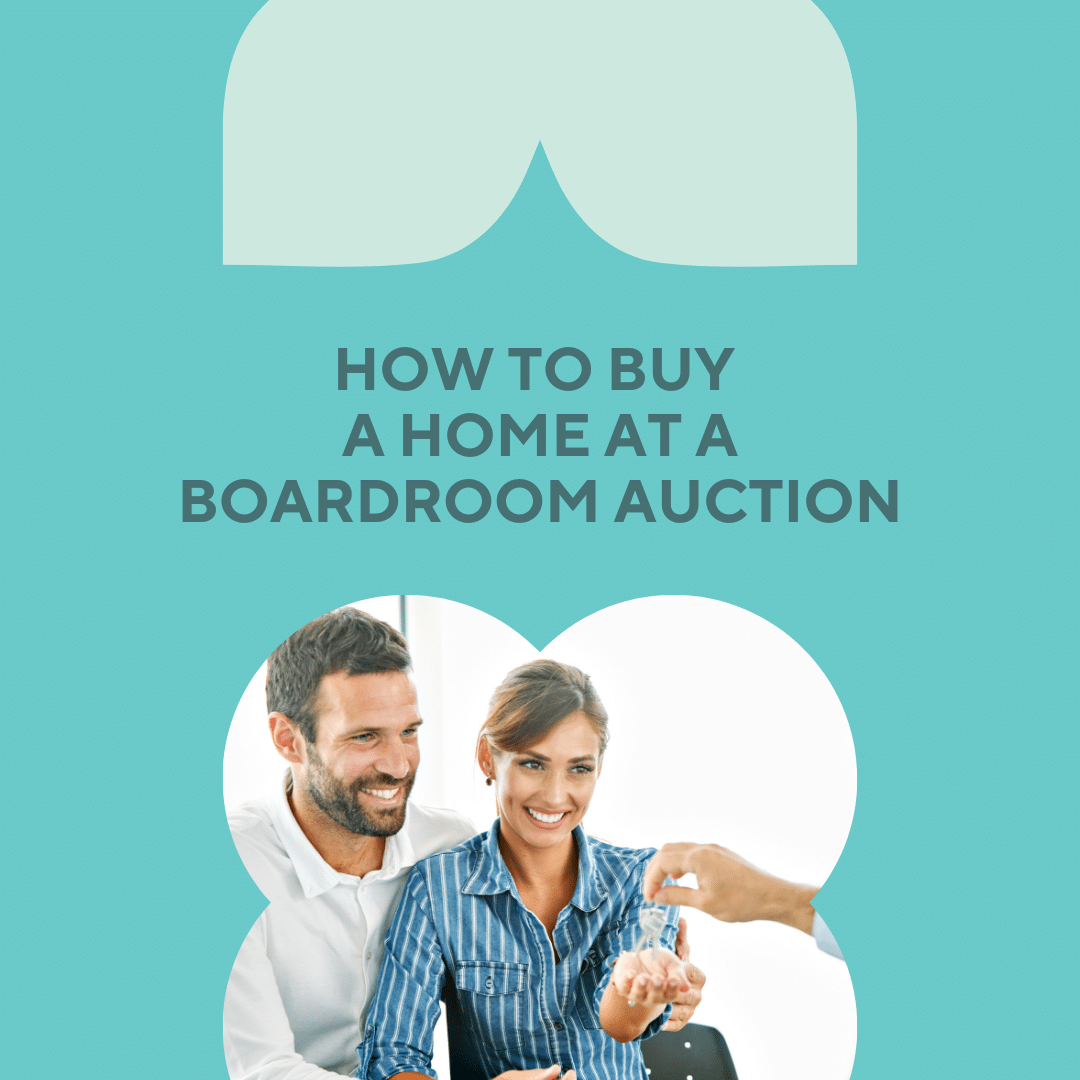by Carly Susic, Melbourne property advocate
Due to the hesitancy of homebuyers in the 2024 market, we’re seeing a resurgence of the boardroom auction. Buyers are not committed to making moves, so they’ll only bid at auction when they’re really serious about the investment. Therefore, agents are nervous about potential lacklustre results. Which means that homes selling beforehand are becoming increasingly common in the Melbourne property market. So if you’re a buyer in the market, you need to understand this trend and be prepared to buy under these conditions. If a home you are interested in is suddenly selling and you are told that a boardroom auction will take place—get ready.
What is a boardroom auction?
Essentially, a boardroom auction takes place when the property sells before the listed auction date. Agents will gather together interested parties to mimic the auction environment. Consequently, the same auction regulations and laws apply. A boardroom auction typically takes place in the offices of the real estate agent, or on occasion, in the property itself. Interested parties attend the meeting and place bids on the property until it is sold to the highest bidder.
Why would a home be sold via a boardroom auction?
Typically, when one buyer makes an acceptable offer prior to the auction, the agent may decide to stage a boardroom auction. What’s important is that the vendor finds the offer acceptable—so silly low offers don’t meet that requirement.
If the market is slower, as it is currently, a boardroom auction may help boost the home’s chances of selling. (Whereas, if there is strong demand, it is in the vendor’s interest to take the property to auction.)
Boardroom auctions are more likely in a slower market
Firstly one buyer places an offer that the vendor finds acceptable. Then, the agent will gather interested bidders to stage the auction early. The agent might steer towards a taking an offer prior to the auction if there is:
- a lack of serious buyer interest at open houses
- strong competition from other properties
- an expectation that buyers are waiting for other properties to come on the market in coming weeks
- a nervous vendor who wants to lock in a buyer quickly
- a fear about potential bad publicity of a failed auction and an unhappy vendor
How to prepare for a boardroom auction
As a buyer, you don’t want to be caught out with a surprise boardroom auction. Often they can happen quite quickly. It is not unusual for interested buyers to get a call in the morning about a boardroom auction being held later that day, or within 24 hours. So if you are interested in a property, ask the agent if they are going to be taking early offers and be prepared for a potential boardroom auction if there are multiple buyers interested. You’ll have to get your strategy ready quickly too.
A boardroom auction is triggered when a buyer makes an acceptable offer and there are multiple other parties
Of course the offer has to be realistic. If the offer is at a price that the vendor will accept and there are multiple buyers that are interested at that level or above then there is a possibility a boardroom auction will be declared.
Generally, we don’t recommend being the person making that initial offer. As long as you’ve registered your interest in the property, the agent will be in touch to advise you if a boardroom auction is taking place.
At a boardroom auction he person making the first offer shows their hand first. And there is no advantage to you to get the ball rolling. If the agent is keen on a boardroom auction, they may encourage you to start the process by placing an offer. Circumstances differ, but generally we suggest allowing another buyer to take the plunge first.
What happens during a boardroom auction?
Usually the auction will follow this process:
- All interested buyers will gather at the location, typically the agency boardroom.
- Usually three interested buyers or more will be in attendance.
- The agents will invite the person who made the offer to confirm the price.
- Once the initial offer is confirmed, the auction will begin.
- At this point the property is on the market and will sell.
- Remaining buyers will bid as per typical auction conditions until everyone is out and the highest bidder is successful.
The benefit of a boardroom auction is all buyers have visibility of each other. And unlike a street auction, no surprise buyers can pop out from behind a tree at the last moment and blast other bidders away.
Ask the agent questions
If you inspect a property and have strong interest, speak to the agent. You need to determine the likelihood of the property selling prior to the auction. So simply ask the agent:
- “Is there any chance of the property selling before the auction?”
- “If so, will you stage a boardroom auction?”
Each real estate agent handles boardroom auctions differently. So it’s important for you to know the agent’s preferred process to give yourself the best chance of success.
Most stage them in the process listed above. However some agents ask for a ‘best-and-final’ offer which is an entirely different process.
What is a best-and-final offer sale process?
Unlike boardroom auctions, which are held in person (or via Zoom), best-and-final offers invite interested bidders to submit a single bid with their best price.
It’s really stressful for buyers because you don’t know where the other buyers are sitting in terms of price. You fear bidding too low and missing out, or bidding too high and paying too much for the property.
In best-and-final sales, aim to get in first
Placing the first acceptable offer gives you a strong advantage. In most cases only the first offer gets the right of reply. This gives you, and only you, a chance to top remaining offers. So unlike the boardroom auction, where it is advantageous to wait, you should aim to get that first offer if the home is being sold under best-and-final procedure. You definitely want to be the one who has the final bid, and you can choose to outbid the other offers or walk away.
How do you determine the right price with a best-and-final offer?
It’s really difficult. But there are ways for you to come up with your best price.
Get as much information as you can from the agent. Ask them what price range you should be within. As the deadline draws closer, you can ask the agent for a ballpark. For example, if the asking price is $1.5 -$1.5 million, you can ask the agent if the offers are at the upper or lower end of that range.
If you can’t get in first, wait until they are just about to close to place your offer. That way they don’t have much time to shop your offer around and get a higher bid.
Always get written confirmation of your bid. Make sure your offer is in writing and ask the agent to email you in writing that your bid is received and confirmed, so you are definitely in the race.
Which is better, best-and-final or boardroom auction?
We prefer a boardroom auction because it is more transparent. You don’t make your final bid and you have a chance to keep bidding if someone tops your offer. And, you know who’s bidding and where the market sits with price, so you are less likely to miss out with a lowball offer. You are also less likely to risk overpaying with an unnecessarily high offer.
However, some agents love a best-and-final process and they swear it’s the best way to get a great price for the vendor.
Using an advocate is highly useful for boardroom auctions or best-and-final sales
Buyers advocates know the agents and therefore we know the process they follow and prefer. No matter the process, we can help you prepare for your buying strategy to help you place your offers at the right time, stick to your budget and maximise your chances of success.
We are very experienced at buying properties in these circumstances. Particularly because we have relationships with the agents so we know their processes for selling homes prior to auctions. Also, if you are feeling nervous, enlisting a calm buyers’ advocate to bid on your behalf. This can leave other bidders unsure and maximise your chances of success.
Additionally, these kinds of sales tend to happen very quickly so a buyers’ advocate can help you prepare in a rush and create the right strategy using our extensive knowledge of the market and help you buy at the right price.
To recap: what is a boardroom auction?
- A process where the home is sold prior to the auction
- They usually take place in a slower market
- The boardroom auction is triggered when a buyer places a bid that is acceptable to the vendor
- Boardroom auctions can happen quickly so you need to be prepared
- Buyers gather at the agency boardroom and bid under auction conditions till the home is sold
- Some properties can sell in a best-and-final offer which follows a different process
- Each interested party submits one bid only
- In best-and-final sale conditions, it’s better to be the first bidder as you will be the only one getting right of reply
- Regardless of the process, its advantageous to have a buyers’ advocate to assist you, to help you prepare a strategy to maximise your chances of success
Contact us for a no-obligation free discussion
As vendor advocates we can help you when buying at a boardroom auction. Contact us for a no-obligation consultation.




